 Folic acid: new research is a 'gamechanger' in push to fortify British foods | Health | The Guardian
Folic acid: new research is a 'gamechanger' in push to fortify British foods | Health | The GuardianNutritionWhat is Fortified Cereal, and is healthy? Cereal is a popular breakfast meal that is often fortified. You may wonder if fortified cereals are healthy, as many have impressive health claims in their packaging. This article analyzes in depth the fortified cereals and their health effects. They contain added vitamins and minerals that are not naturally present in them. Fortification aims to improve the particular nutrient levels of people and is common for foods that adults and children usually eat, such as grains, milk and juice. The cereal is one of the most commonly fortified foods. For example, 1 cup (40 grams) of total fortified cereal has 40 mg of — 100% of daily value (VD) (). Given that the same size as an unfortunate wheat cereal is only 10% of the DV, much of the iron content of breakfast cereals can be due to fortification (). It is important to monitor your nutrient consumption, as many people in the United States do not consume enough iron, calcium or vitamins A, C, D and E. Deficiencies can lead to negative health effects (). Breakfast cereals are commonly fortified with the following nutrients ( ): Fortified cereals contain added vitamins and minerals to help improve nutrient intake. Fortified cereals contain added vitamins and minerals to help improve nutrient intake. Food manufacturers often fortify ready-to-eat and pre-packaged cereals, and sometimes hot cereals like (). However, fortified cereals are not inherently healthy. While some are made with whole grains and high in fiber and protein, others do not contain almost any nutrients. For example, Kellogg's Frosted Flakes does not offer fiber and only 1 gram of protein for 3/4 cup (29 grams) (). You can tell if a cereal is fortified because the added nutrients will be specified in the packaging. Often, below the list of ingredients, there is a list of vitamins and minerals used to fortify the product. Please note that fortification varies according to the region. It is more common to find fortified cereals in Western countries (). In addition, some countries, including the United States, Canada, Costa Rica, Chile and South Africa, commit the fortification of wheat flour with folic acid, so it is more common to find grains rich in folic acid in these places (). It should be noted that less processed cereals are less likely to be fortified. For example, it usually consists of unfortified whole oats, nuts, seeds and dry fruit. Abstract Many packed and ready-to-eat cereals are fortified. To determine if your cereal is fortified, check the label of vitamins and minerals listed below. Many packed and ready-to-eat cereals are fortified. To determine if your cereal is fortified, check the label of vitamins and minerals listed below. Fortified cereal consumption can help prevent nutrient deficiencies. Improved nutrient intake Many people in the United States for certain vitamins and minerals. As such, eating fortified foods can help (, , ). A recent study noted that eating fortified foods increased the intake of folates and vitamins A and C (). Some people, such as young children, and pregnant or lactating women, may benefit in particular from fortified cereals due to their growing nutrient needs (, ). That said, fortified foods may increase your risk of exceeding certain nutrient recommendations (, ). Lower risk of birth defects Strengthen cereals with — the synthetic form of folate — has successfully reduced the incidence of neural tube defects, which are one of birth. Folate is a vitamin B needed for proper growth and development (, ). In fact, all women of childbearing age are advised to consume 400 mg of folic acid daily from food and/or fortified supplements, as well as to eat (, ). Therefore, fortified cereals can benefit women who are or may become pregnant. SummaryFortified cereals can reduce the risk of nutritious deficiencies. Specifically, folic acid fortifying foods have helped reduce the incidence of birth defects. Fortified cereals can reduce the risk of nutrient deficiencies. Specifically, folic acid fortifying foods have helped reduce the incidence of birth defects. While fortification can improve nutrient content, cereal remains a processed food and is not necessarily healthy. It can be loaded with refined sugar and carbohydrates Many fortified cereals are high and refined carbohydrates (). In addition, most people eat more than the recommended portion size. In fact, a study in 72 adults determined that people ate 200% of the size of the labeled portion, on average (, ). For example, 1 cup (53 grams) of Raisin Bran Crunch packs 13 grams of added sugar. Duplicating that the portion size would provide a total of 26 grams of added sugar (, ). According to the American Heart Association (AHA), women and men must limit their daily consumption of sugar added to 25 and 37.5 grams, respectively (, ). This means that a bowl or two of fortified cereals could easily put you close to - or even above - you. Not only Americans tend to overcome the guidelines for intake of sugar, but the high diets in added sugars are also associated with a higher risk of chronic diseases such as obesity, heart disease and diabetes (, ). Many manufacturers label their cereals with deceptive health claims, such as "low fat" or "total-grain" (). This is misleading because the primary ingredients are generally and sugar. For example, Honey Nut Cheerios are marketed to help reduce cholesterol. However, a portion of 1 cup (37 grams) contains 12 grams of sugar (). Research suggests that high sugar added diets increase the risk of heart disease (, ). Such misleading claims can lead people to unhealthy foods. In addition, many fortified cereals are sold to children. Studies show that advertisements affect children's preferences and can contribute to the risk of obesity (). As such, you should avoid any misleading claim.summaryFortified cereals are generally not as healthy as your packaging claims, as many are high in added sugar and refined carbohydrates. Fortified cereals are generally not as healthy as their packaging says, as many are high in added sugar and refined carbohydrates. It is better to choose cereals that are low in sugar and high in fiber. Find types with less than 6 grams of sugar and at least 3 grams of fiber per serving. can help increase fullness and reduce cholesterol levels, among other benefits (). As many lack proteins, they include a protein source to create a more satisfactory and balanced meal. Consider adding Greek yogurt, nuts or peanut butter. However, the best choice for a nutrient-rich breakfast is whole, unprocessed foods such as oats, yogurt, fruit or eggs. Summary It is better to select cereals that are low in sugar and high in fiber, or simply eat whole foods without processing instead. It is better to select cereals that are low in sugar and high in fiber, or simply eat whole foods without processing instead. are commonly eaten for breakfast and can help prevent certain nutrient deficiencies. However, many have misleading claims and are loaded with refined sugar and carbohydrates. Fortification alone does not necessarily make the cereal healthy. For one, you are better to eat whole foods without processing like eggs or oats. Read this now.
Error 503 first byte timeoutfirst byte timeout Guru Mediation:Details: cache-sin18027-SIN 1615346672 3961080749 Barniz cache server

Folic acid in fortified grains saves 1,300 babies a year, study finds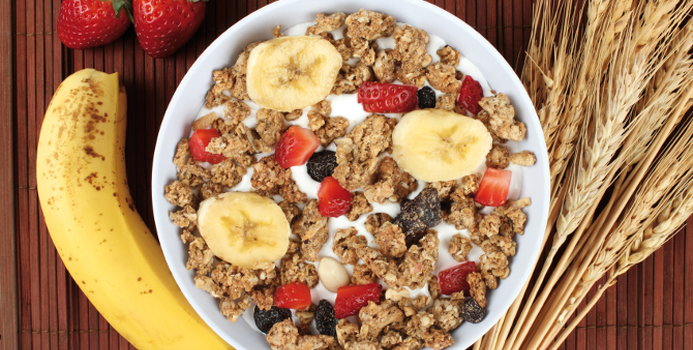
5 Foods Rich With Folic Acid / Nutrition / Vitamins and Minerals
Best Sources of Folate
new year's resolutions | Go Folic! Be Healthy!
Kellogg's WIC Eligible Cereals and Image Library | Kellogg's Nutrition
What is folic acid? - BBC Good Food
Folic Acid In Cereal Reduces Abnormalities Of The Brain and Spine In The Unborn Child - Medical Articles by Dr. Ray
Weetabix Crunchy Bran Cereal 375G | British Foods Direct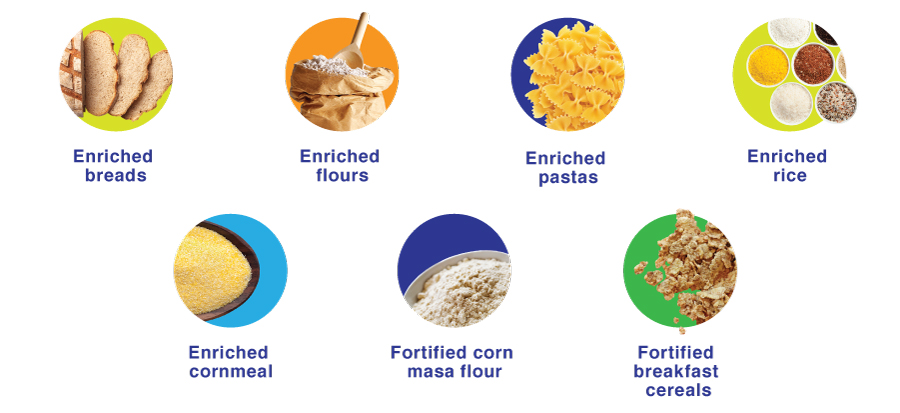
Folate and Folic Acid on the Nutrition and Supplement Facts Labels | FDA
Not so Special K: ASA bans Kellogg's ad over folic acid claims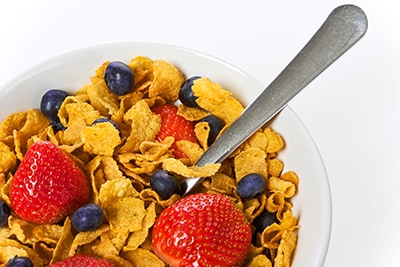
Key Findings: Are Women Getting Enough Folic Acid? | Folic Acid
Amazon.com: Kellogg's Special K, Breakfast Cereal, Original, Made with Folic Acid, B Vitamins, and Iron, 12oz Box
SPECIAL K Cereal Breakfast Cereal, Vanilla and Almond, Low Fat | Cereal | Martin's Super Markets
7 Folic Acid Foods To Include In Your Pregnancy Diet | MommaBe
Going Folic in 2013 – An Easy New Year's Resolution to Keep! | Go Folic! Be Healthy!
Some cereals have 12X more Glyphosate than Vitamin D - Oct 2018 | VitaminDWiki
What Is Fortified Cereal, and Is It Healthy?
Top Folate Foods for Pregnancy | Parents
Aldi tackles 'pester power' by banishing last of breakfast cereal cartoons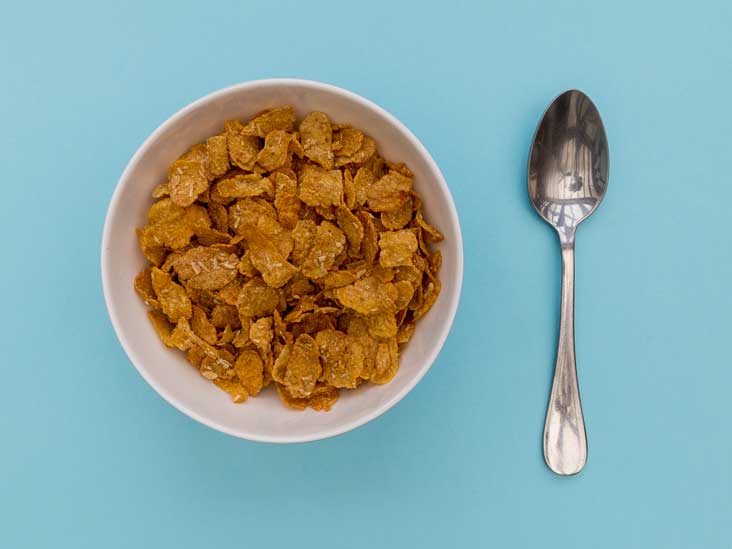
What Is Fortified Cereal, and Is It Healthy?
15 Healthy Foods That Are High in Folate (Folic Acid)
Special k, breakfast cereal, original, made with folic acid, b vitamins, and iron Kellogg's 12 oz delivery | Cornershop
What Is Fortified Cereal, and Is It Healthy?
Reduction of Plasma Homocyst(e)ine Levels by Breakfast Cereal Fortified with Folic Acid in Patients with Coronary Heart Disease | NEJM
Folic Acid Awareness Week - Reclaiming Intimacy
The UK must introduce folic acid fortification in foods, say scientists:max_bytes(150000):strip_icc()/GettyImages-163524717-56eac1c75f9b581f344dea1a.jpg)
Is Folic Acid the Same as Folate?
WPHNA World Public Health Nutrition Association
Folic acid helps prevent premature births - CNN.com
Pin on What's for breakfast???
PDF) Folic Acid Content of Ready-to-Eat Cereals Determined by Liquid Chromatography-Mass Spectrometry: Comparison to Product Label and to Values Determined by Microbiological Assay
Folic Acid Helps Prevent Some Birth Defects | CDC
Folic Acid, Too Much of a Good Thing? | Tufts Now
New Stanford study raises questions about effect of folic acid supplementation on birth defects - Scope
Adding Folic Acid to Bread Flour May Prevent Birth Defects | Feminine Touch
Pregnant? Don't forget the folic acid
EFFECTS OF BREAKFAST CEREALS ON PLASMA FOLIC ACID LEVELS.* | Download Table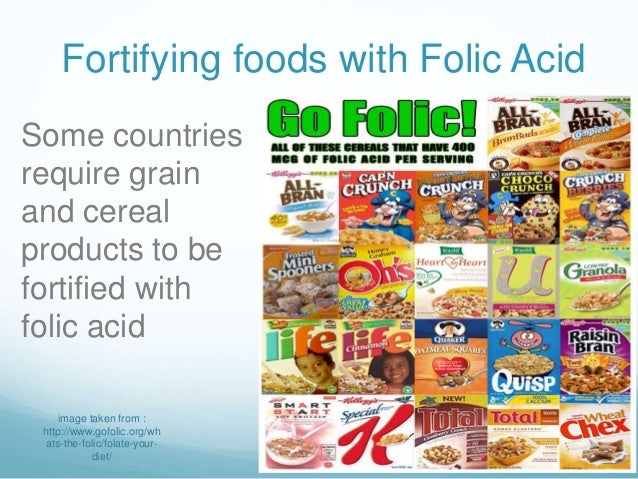
Silverman powerpoint assignment
Additional intake of folic acid in fortified foods and estimated cereal... | Download Scientific Diagram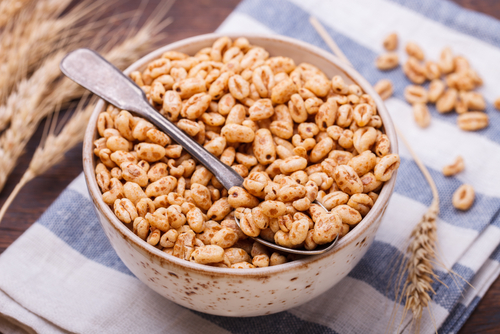
18 Folic Acid Foods That Raise Folate Levels
 Folic acid: new research is a 'gamechanger' in push to fortify British foods | Health | The Guardian
Folic acid: new research is a 'gamechanger' in push to fortify British foods | Health | The Guardian





















:max_bytes(150000):strip_icc()/GettyImages-163524717-56eac1c75f9b581f344dea1a.jpg)









Posting Komentar untuk "cereals with folic acid"